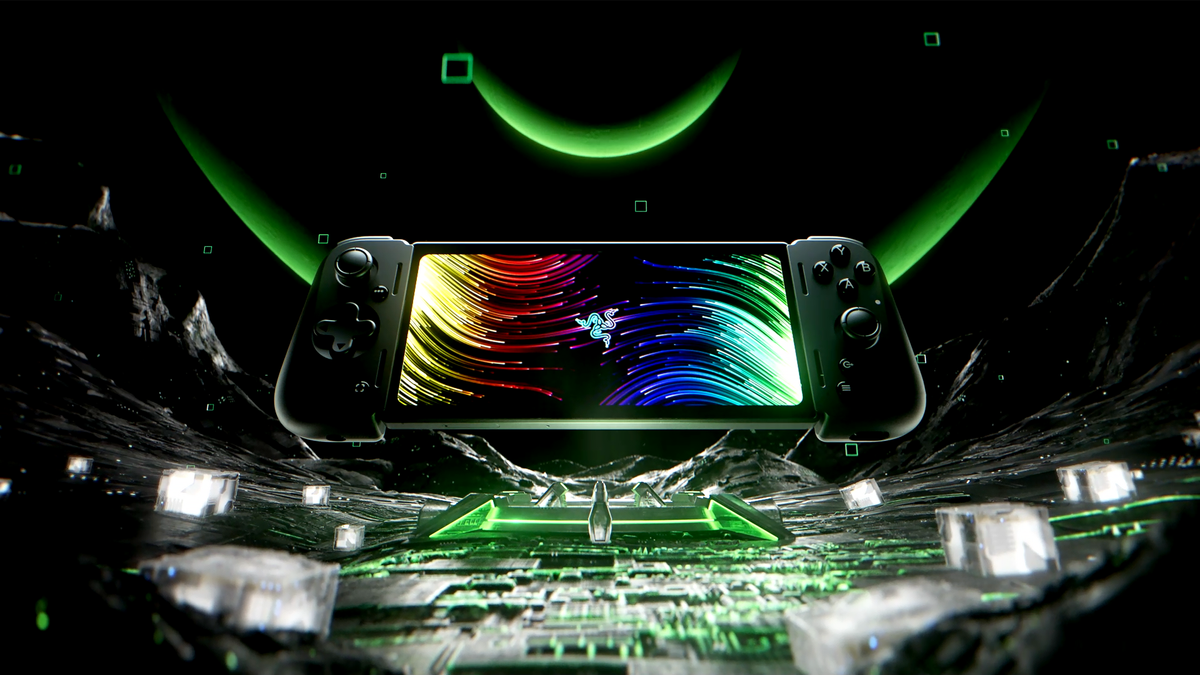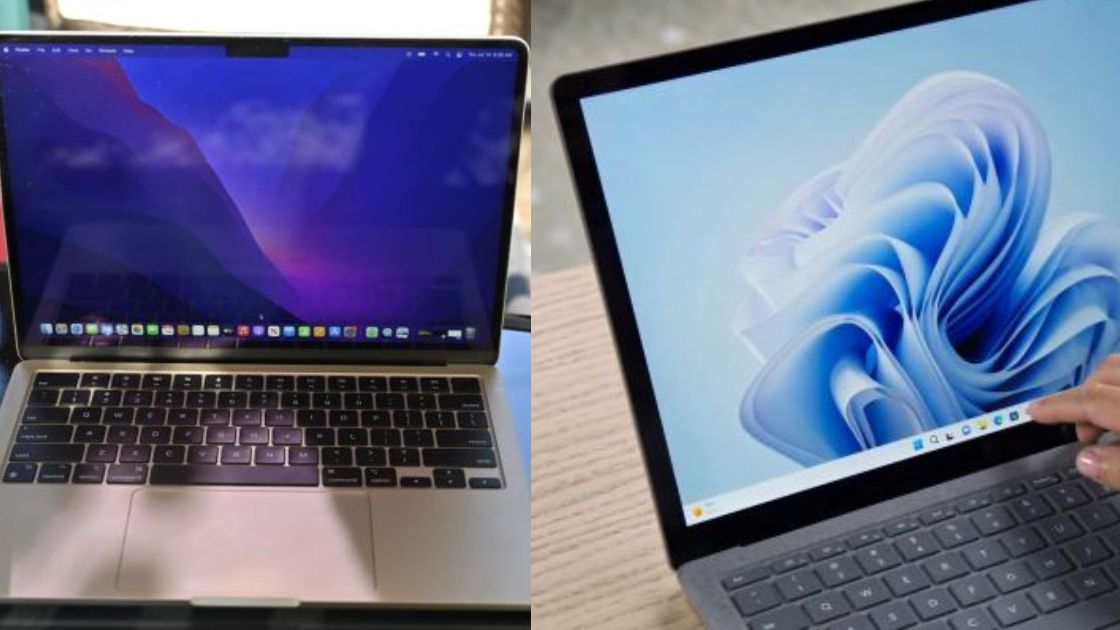RazerCon 2022 is off and running today with the keynote for the third annual “celebration of gaming culture” from Razer showing off some of the latest hardware from the gaming giant. The Razer Edge 5G handheld console will be the highlight of the event for some; however, the updated Razer Kraken Kitty V2 Pro headset with its new interchangeable ears will steal the show for others.
Those two products would have been plenty for the ongoing live stream event that also features many special guests, musical performances, and a host of gaming-related giveaways. We’ll stick to the new products, though. Here’s a closer look at what Razer revealed.
Razer Kraken Kitty V2 Pro
Let’s not kid ourselves; the Razer Kraken Kitty V2 Pro headset with its new interchangeable ears is the real star of the show. The Chroma RGB wired headset takes what fans loved about the original and gives users bear and bunny ears in the box along with the kitty ears that give the headset its name. The ears are easily swappable, and of course, RGB lighting in the ears and the earcups can be customized to respond to emotes, alerts, and more. These are poised to be another huge hit with streamers.
It’s more than just the fun look, though. The Kraken Kitty V2 Pro features a detachable Razer HyperClear cardioid mic and Razer TriForce 50mm drivers with support for 7.1 digital surround sound. The hybrid fabric band and leatherette cushioning around the ears offer solid noise isolation and should keep you comfortably ensconced while gaming for hours on end.
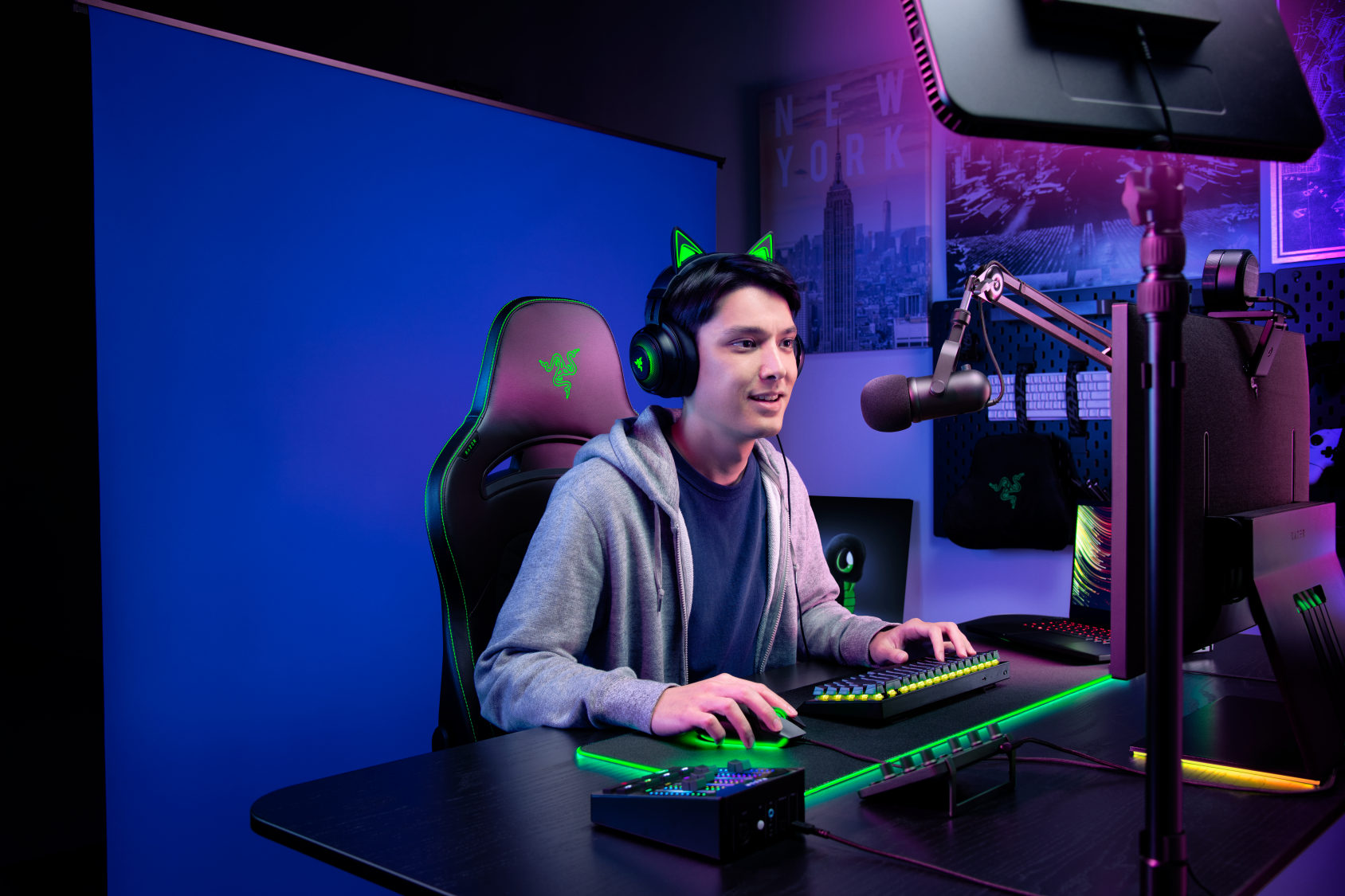
The Razer Kraken Kitty V2 Pro will be available to pre-order in Q4 2022 (likely some time next month) and will start at $199.99.
Razer Edge handheld gaming console
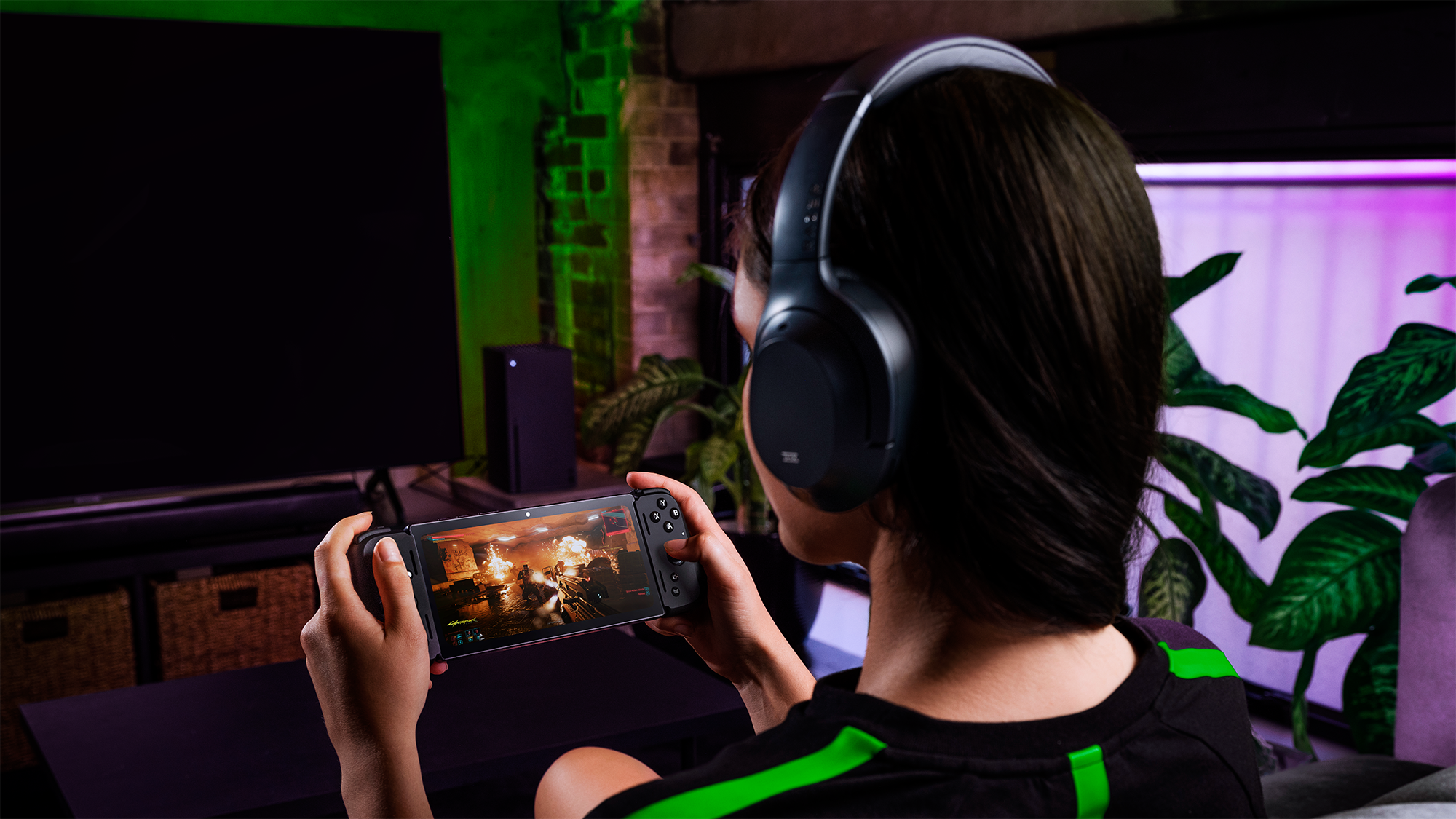
Handheld gaming is having a moment. Look at the continued success of the Nintendo Switch and Nintendo Switch OLED in the console’s 5th year on the market, while the Steam Deck is garnering considerable attention and praise since its launch earlier this year. Now, we have a new wave of cloud gaming-focused handhelds arriving this fall. The Logitech G Cloud was announced last month, and while we are a bit skeptical based on its $349 price point and middling specs, it could be an interesting test of how important hardware is for a cloud-based gaming handheld.
Today, the Razer Edge enters the increasingly crowded handheld gaming console fray. The Android-based Razer Edge falls closer to the G Cloud than the Steam Deck, but there are a few crucial differences that have me far more interested in Razer’s spin on handheld gaming than Logitech’s.
First, you have a far more capable processor in the Snapdragon G3x Gen 1 Gaming Platform with a 3GHz octa-core CPU and Adreno GPU. That is lightyears beyond the Snapdragon 720G found in the G Cloud. If you are looking at a handheld for cloud-gaming only that shouldn’t matter much; the 720G is perfectly capable of serving as a launcher for GeForce Now, Xbox Game Streaming, etc. However, if you are going to have an Android-based handheld gaming console, it seems a waste to not be able to play any Android games on it and the G Cloud definitely slams the door on Call of Duty: Mobile or anything graphically intensive.
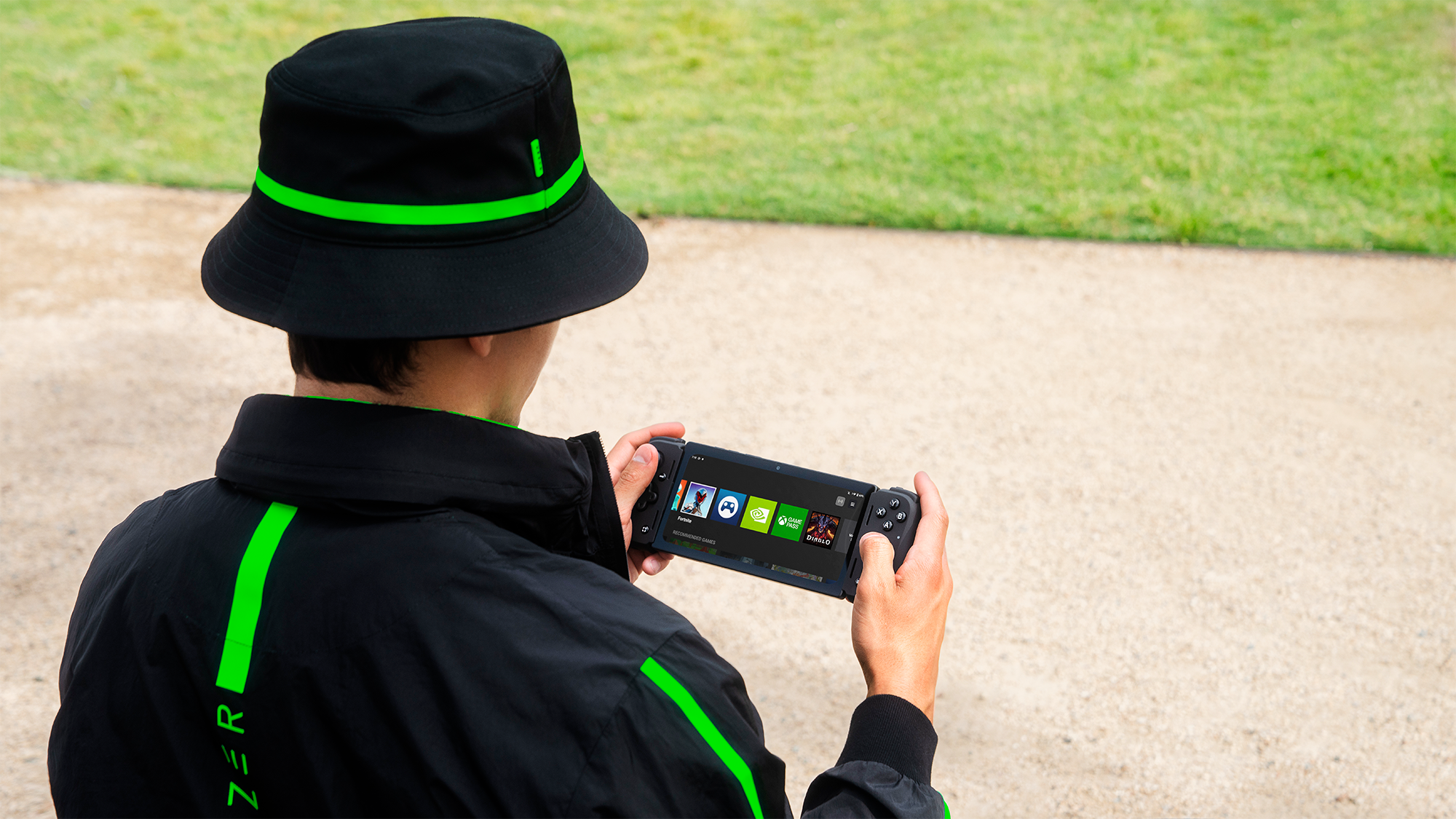
Second, the Razer Edge 5G naturally has a built-in 5G radio, which means you have a fast connection virtually wherever you are. Gaming on your couch or in bed with your handheld console is great, but you want to be able to toss it in a bag and game on the go, too. The Edge 5G makes that infinitely more plausible without needing to rely on flakey public Wi-Fi or creating a hotspot with your phone. It’s worth noting that this model is a Verizon exclusive, at least at launch, and there’s no word yet on what the monthly cost of a plan will be for the Razer Edge 5G.
The Razer Edge boasts a 6.8-inch, 144Hz AMOLED display with a 2400 x 1080-pixel FHD+ resolution. There’s no dynamic refresh rate as you would see on a flagship phone, but this is a gaming handheld — you just want a gas pedal and no brakes. There are no cameras on board to interfere with the display or throw off the balance of the console in your hands. The 5000 mAh battery should get you through hours of gaming, although Razer didn’t make any specific claims, so we’ll have to see when we get it in for review.
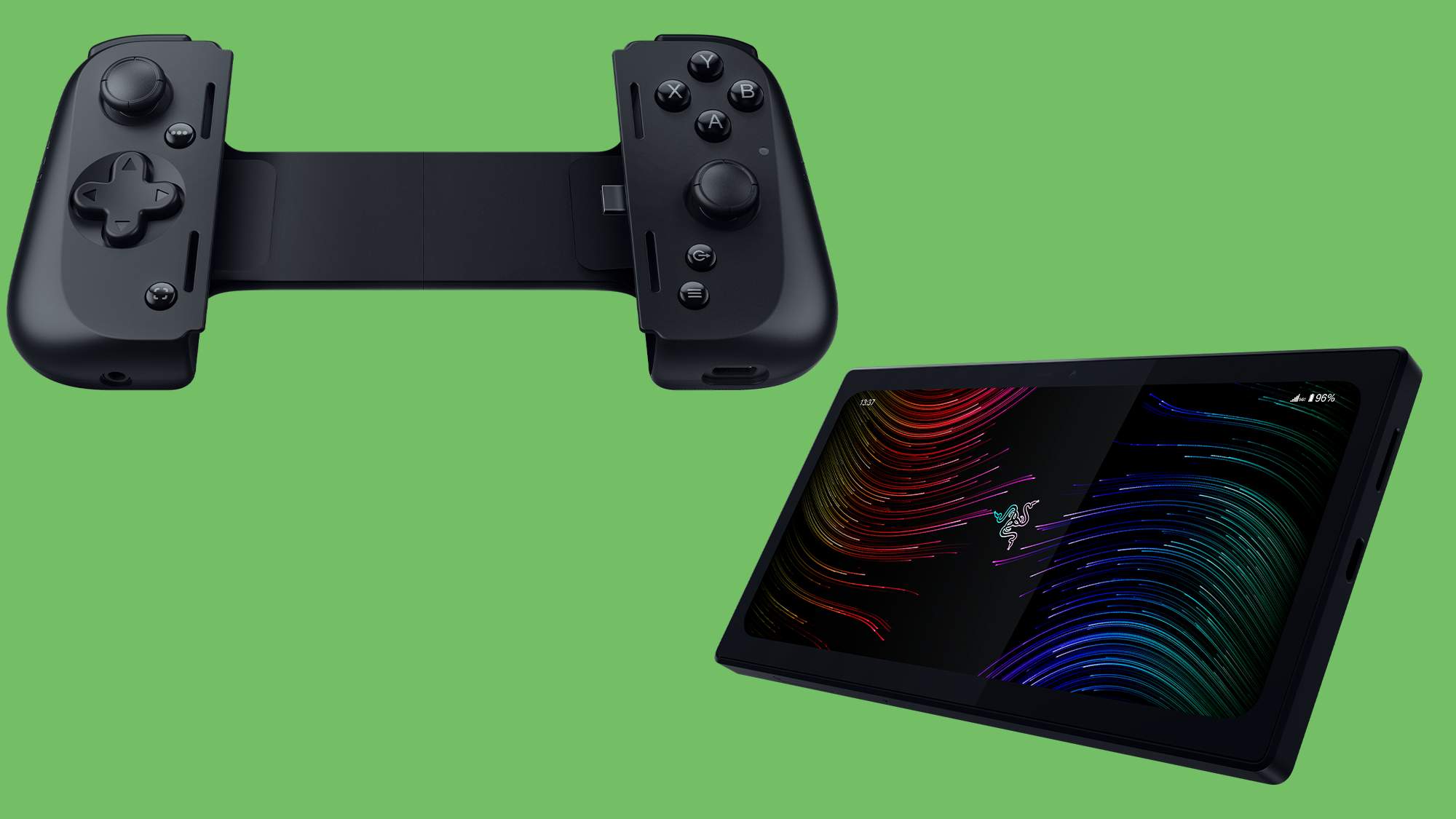
Perhaps the most interesting thing about the Razer Edge to me is that unlike the G Cloud, the Steam Deck, or the Snapdragon G3X developer kit we saw last year, this isn’t a single solid console. The Razer Edge is the device at the core, but it is docked in a new Razer Kishi V2 Pro gaming controller that comes in the box with it. This is essentially a gaming phone that isn’t a phone from Razer — an Android-based iPod Touch. It’s an interesting notion as you could pair this with a Pixel 6a or some other budget phone and still come in well under the cost of something like an iPhone 14 Pro or Galaxy S22 Ultra. But is that preferable to just buying a flagship phone and pairing it with the Kishi V2 Pro or one of the other best phone controllers on the market?
A Wi-Fi-only version of the Razer Edge is coming in January for $399, but Verizon hasn’t yet announced the cost of the Razer Edge 5G model. The cost of that model and the data plan for it are going to be significant pieces of the puzzle for this device. As I said, I’m intrigued by this device, but I’m not certain whether cloud gaming is ready to be the primary gaming option for anyone yet, which could ultimately sink both the G Cloud and Razer Edge regardless of how good the hardware may be. Sometimes being ahead of your time is no different than being a bad product.
Razer gaming accessories
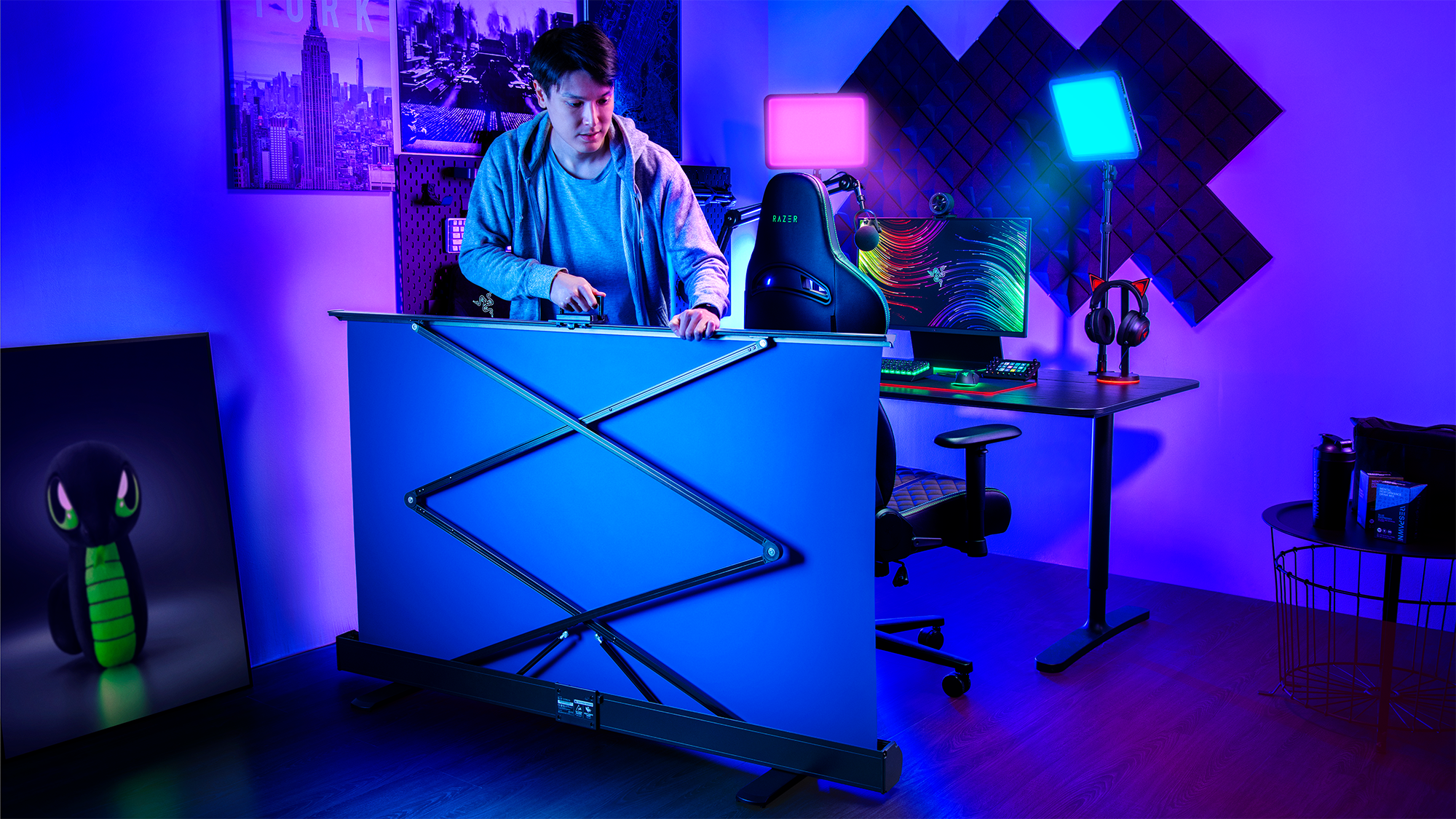
While the Razer Edge and Kraken Kitty V2 Pro were the headliners, Razer had a number of other products up its sleeves.
The Razer Blue Screen is a chroma key panel for streamers that is a height-adjustable, 94-inch wrinkle-free backdrop that can be quickly deployed and then collapsed for easy storage. If you aren’t someone that has a permanent space you can dedicate to a streaming setup, this could be an excellent alternative. It’s available starting today for $149.99.
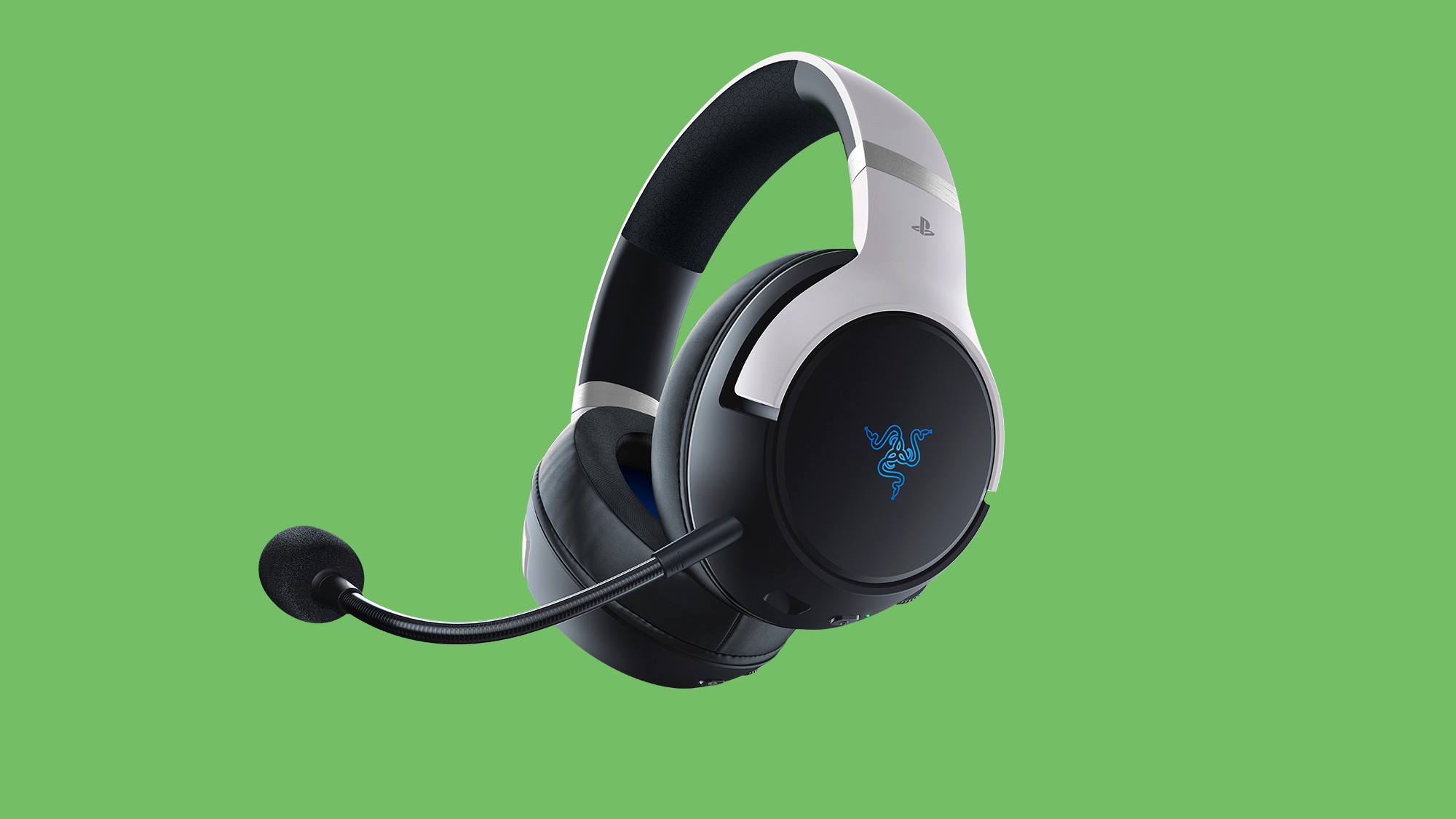
Razer’s Kaira line of headsets is growing with a Kaira X wired headset along with wireless Kaira HyperSpeed and Kaira Pro HyperSpeed models. The latter two boast 2.4GHz wireless connections and up to 30 hours of battery life. The Pro HyperSpeed breaks new ground with haptics powered by Razer HyperSense to let you not just hear what’s going on in the game, but feel it as well. All three models feature Razer TriForce Titanium 50mm drivers and detachable Razer HyperClear Supercardiod ENC microphones. They are all available today with the Kaira X starting at $59.99. The Kaira HyperSpeed and HyperSpeed Pro start at $129.99 and $199.99, respectively.
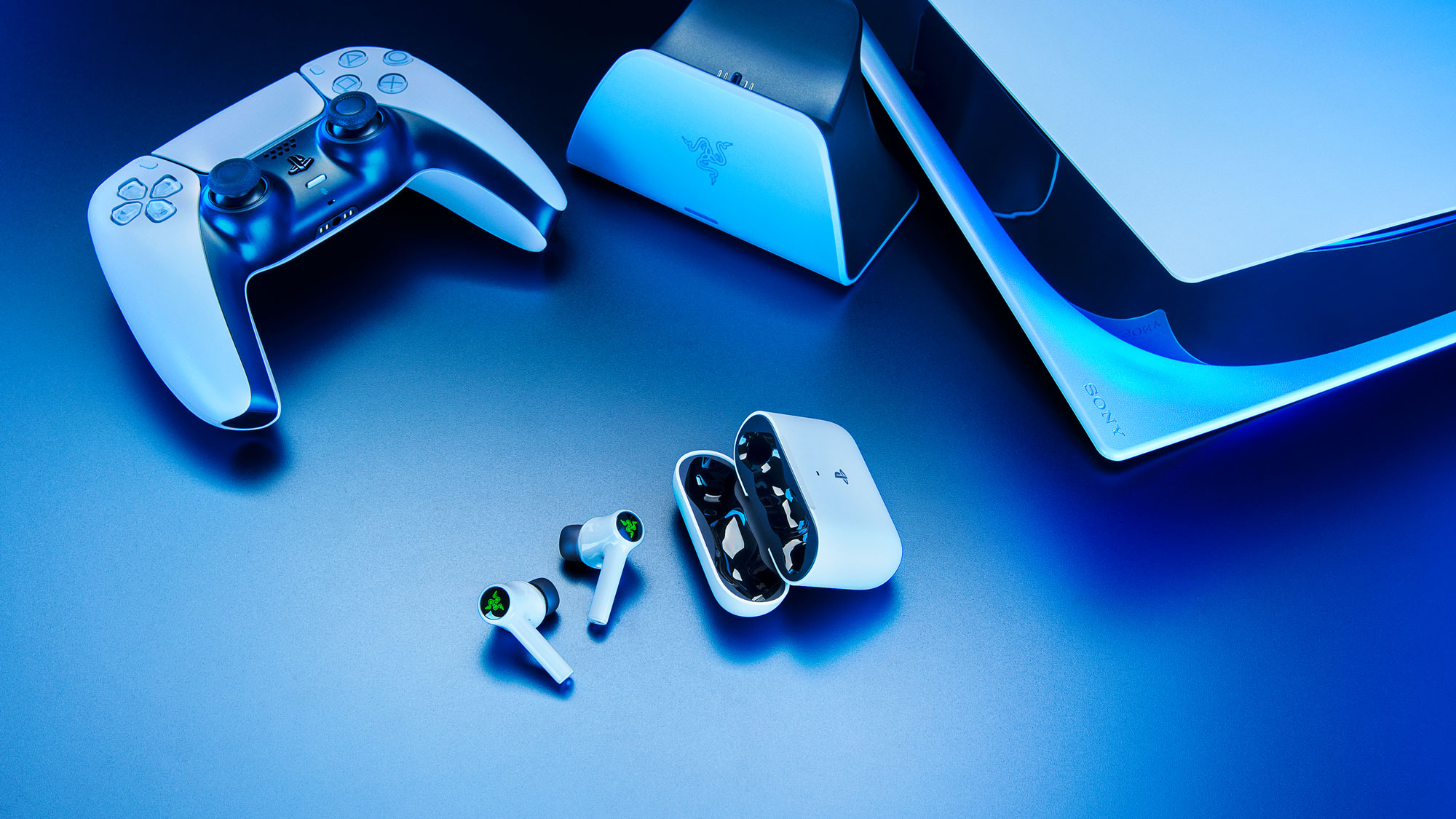
Finally, Razer showed off the Hammerhead HyperSpeed “gaming grade earbuds” with active noise cancellation. They feature Chroma RGB (because of course they do) with up to 30 hours of battery life with the charging case, 2.4GHz wireless when using the included USB Type-C dongle or Bluetooth 5.2 when low latency audio isn’t a must. There are PlayStation and Xbox branded versions of the earbuds so you can rep your preferred console. The earbuds will arrive in November starting at $149.99.

